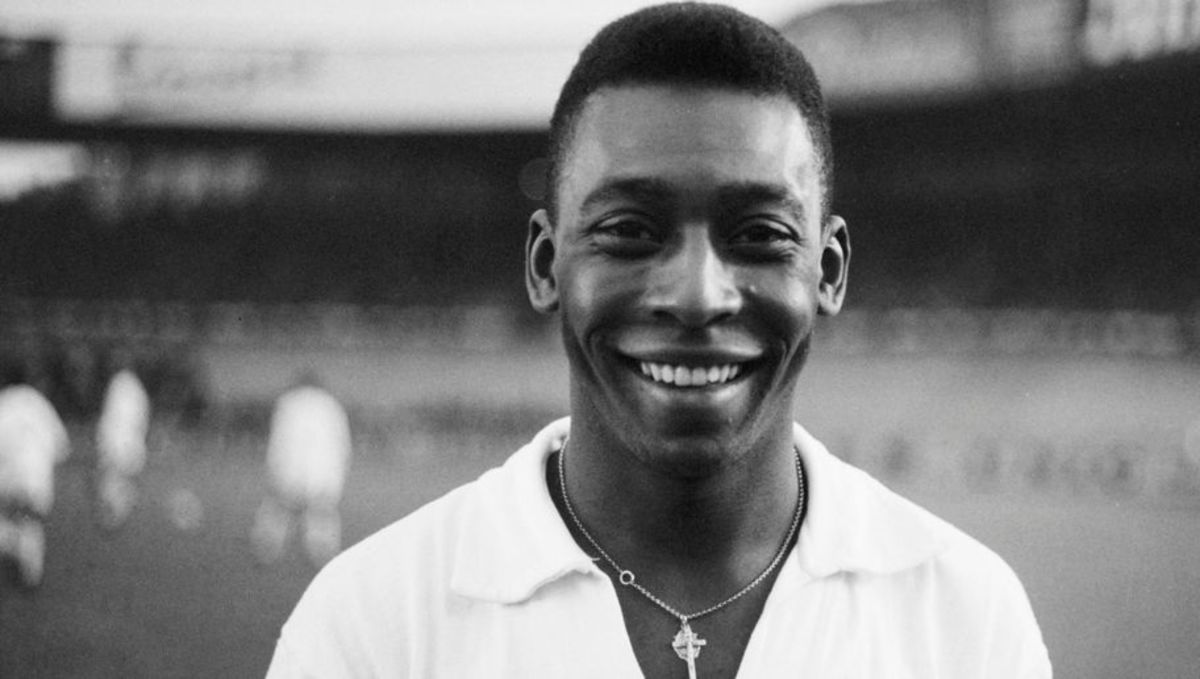World Cup Countdown: 15 Weeks to Go - Was the Emergence of Pelé Down to a Lack of Competition?

A 17-year-old making his first appearance at a World Cup, missing the first few games through injury, then going on to be the hero in the final to win football's greatest prize before he even hits adulthood.
Fairytale stuff, right? Pele's remarkable story deserves all the documentation it so rightly has, but has anyone ever wondered how Brazil's boy wonder would've got on at the 1958 World Cup if he had a bit more individual competition?
Namely, the likes of Hungarian duo Ferenc Puskás and Sándor Kocsis, exiled Argentine turned Italy international Omar Sívori and the much travelled Alfredo Di Stéfano, were all some of the world's biggest stars at the time, but none of them travelled to Sweden to partake in the world's biggest tournament.
Not to take any of the shine away from Pele's brilliance at this tournament - to score six goals in just four games as a 17-year-old against the world's best takes some doing - but there was a real lack of great goalscorers at this tournament in particular.
(You may also be interested 'World Cup Countdown: 15 Weeks to Go - The Welsh 'Gentle Giant' John Charles' 1958 Appearance')
France's Just Fontaine - scorer of a record 13 goals in the 1958 edition of the FIFA World Cup - finished as top scorer ahead of Pele and Helmut Rahn by seven goals as he proved himself to be one of history's greatest goalscorers. In context, however, the aforementioned pair were Pele's only rivals in terms of goalscoring abilities, and if things were different, Brazil and Pele may not have been able to achieve what they did.
The Magical Magyars, as the Hungarian team of 1954 had been famously dubbed, would have been favourites for the title had they remained together but for the Hungarian Revolution stripping them of their star players. Both Puskas and Kocsis fled their homeland, failing to appear at the World Cup as a result, while Hungary felt the full force of their absence as they crashed out at the group stage.
From their side that made the final four years ago, only goalkeeper Gyula Grosics, defender Jozsef Bozsik and a 36-year-old Nandor Hidegkuti remained as the failed uprising against the communist regime tore the side apart.
(You may also be interested in 'World Cup Countdown: 16 Weeks to Go - The Prisoner of War & World Cup Winner, Fritz Walter')
Undoubtedly, if the Hungary side of 1954 remained intact, Brazil would've had a much harder run to the final, and Pele's brilliance may easily have been eclipsed by the exploits of Puskas and Kocsis; especially due to the pair's exploits with their club sides.
Between the 1954 and 1958 tournament, Kocsis in particular scored 48 goals in 60 games for Budapest Honved and Young Fellows Juventus, suggesting he would've been at the very top of his game during the 1958 World Cup.
In addition to this, Puskas scored 31 goals in 51 appearances in the same time period. Undoubtedly the duo would have taken the tournament by the scruff of the neck should they have gone; Brazil and Pele's story may have been scuppered before it even took off.
(You may also be interested 'World Cup Countdown: 16 Weeks to Go - The Magical Magyars, the Best Team Never to Win the World Cup?')
In Sivori's case, after his decision to move to Italy and sign with Juventus, the Argentine football association banned him from representing his country as their pride was dented after seeing one of their stars leave his homeland. Sivori missed out on the 1958 World Cup with Argentina, severely weakening the Albiceleste as they finished bottom of their group.
If Sivori, along with his other exiled teammates in Humberto Maschio and Antonio Angelillo, had turned out for Argentina in Sweden at the 1958 World Cup, it would have been expected that the team performed well and reached the latter stages of the competition.
Having acquired Spanish citizenship after previously turning out for Argentina and Colombia, Di Stefano never appeared at the 1958 World Cup after Spain failed to qualify.
Spain's chances at the World Cup as a team may not have been great even if they had qualified, but Di Stefano's involvement most certainly would have challenged Pele in terms of goalscoring.
If all of the aforementioned had been able to showcase their skills in Sweden, the year Pele announced himself to the world, the story of Brazil's golden boy may have been vastly different.
Having said all of this, a post-pubescent child taking the world by storm shouldn't be discounted by any means. However, it can easily be argued that the child prodigy that was Pele had a fairly unchallenged introduction to his first significant taste of football.





